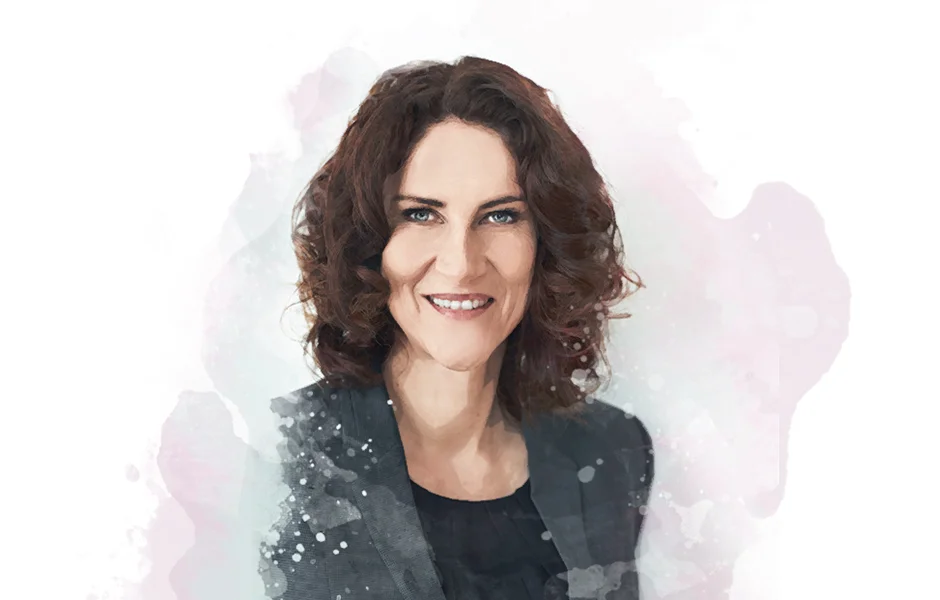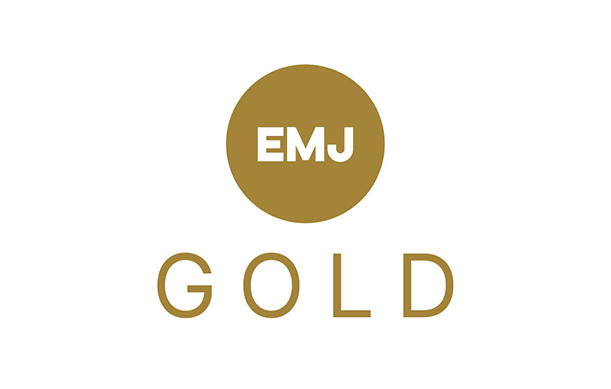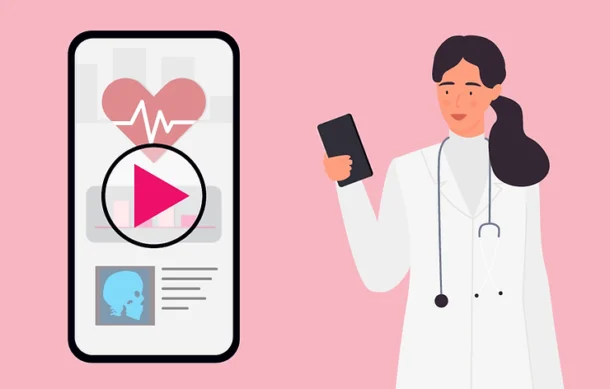Gitte Aabo has held the position of President and CEO at the Danish pharmaceutical company, LEO Pharma A/S, for over 10 years. We spoke to Aabo about LEO’s leading position in dermatology and life-changing moments which help foster the patient-centric environment and mindset that is embedded so deeply within the company
Interview by GOLD
You have been with LEO for most of your working career. Could you tell me how the field of dermatology has changed since you started and what excites you most about the future with not just treating but potentially curing skin diseases?
You are right in saying that dermatology has changed; I would particularly like to point out the increased awareness and recognition over time that a skin disease is a severe disease. Although we still have a long way to go here, the understanding that a skin disease can have a psychosocial impact on someone’s life, in addition to the physical condition, is a huge advancement. Thinking forward, it is exciting to see biologics entering the field, as well as precision medicines and technology. I believe the technological advancement will be very significant in the coming 5–10 years, when we may not only see the advancement of treatment but the potential cure of skin diseases. Above all, the realisation of the impact a skin disease can have on someone’s life has come tremendously far and it is something that I am very proud and grateful to be a part of.
Life-changing moments enable us to see certain situations from a different perspective. Could you share a defining moment in your life or career that has empowered you to create such a patient-centric environment at LEO?
I would say I have experienced a number of defining moments through the conversations I have had with patients kind enough to share their personal stories. A moment that really stands out is when I realised just how many thank you letters we were receiving from our patients, writing to say how a treatment has completely changed their life and how they are now free to live the life they used to live before the disease. This moment made me reflect on just how special what we do really is, and it certainly made me recognise how I have never written to a company to say thank you for the difference they are making – that is something very special. Meeting patients of course creates moments that stay with me. I recently met someone who has suffered with severe psoriasis since his teenage years, and it emerged that he was actually afraid to hold his baby daughter… But now, since treatment, his skin has completely cleared, and that has had a huge impact on both his personal and professional life. It’s what motivates me and everybody else in the company to get up on a Monday morning. Those are life-changing moments
Could you give me an example where LEO have really gone beyond the medicine to make a real life-changing difference to someone living with a skin condition?
The LEO Innovation Lab is a unit we established to explore different ways in going beyond the physical treatment. The average GP is able to correctly diagnose a skin disease 45% of the time. This means in more than half of cases, patients are leaving with the wrong diagnosis and potentially the wrong treatment. Using imaging technology in combination with artificial intelligence, we are developing a tool on the mobile that can correctly diagnose a skin disease. So far, we have made great progression with psoriasis, correctly diagnosing more than 90% of cases, and we plan to advance into dermatitis and acne. Just to be clear, it’s not to say doctors aren’t doing a great job, they are, but there are over 3,000 different types of skin disease – it’s critical we enhance the accuracy of the diagnosis and provide doctors with the tools to achieve this. The tool can also be useful from a medication perspective where a patient can log disease progression and from there predict treatment outcome. For example, if I were to attend a wedding 2–3 weeks from now and wanted to wear a short-sleeved dress, I would want to know if by treating my plaque psoriasis from now until the wedding, I would be clear. This is an example of how the tools can be used to drive patient motivation.
How do you plan to continue using technology and non-pharmaceutical solutions, such as PsoHappy, to improve the lives of patients with skin diseases and tackle the stigma surrounding them?
Together with the Happiness Research Institute in Copenhagen we developed PsoHappy and were able to gather data from 150,000 patients around the world on the impact psoriasis has on someone’s life. Sharing knowledge about the impact a skin disease can have on a life is such a powerful tool. From this data we discovered that, generally speaking, it is a lot tougher for women to live with a skin disease than it is for men. We also uncovered that the older someone gets, the less impact the disease will have on your life. These kinds of insights can help drive awareness and put skin diseases on the public agenda. In addition, they give our R&D teams great intuition on how we can even better develop the next generation of treatments. The area of data will only grow. Data used in the right way has the potential to ensure that new treatments can be developed faster and are more targeted to individual cases, thereby ensuring better outcomes for patients.
The industry has had to embrace a whole new mindset in recent years. Is there an element of this culture change that companies are still somewhat hesitant to adopt (e.g., collaborations and putting the patient before the business)?
Focussing on patients is something that has to be demonstrated in the culture of the company. If you want to pinpoint what we do, we help patients – but we also help individual people. We have a tendency to talk about ‘patients’, but if you have a chronic skin disease, you are not going to think of yourself as a patient, just as a person with a skin disease as a part of your living condition. So, when we are developing new treatments, they have to fit into someone’s ordinary day. This mindset of focussing on what is beneficial for the individual patient is something that has to penetrate a company. LEO is 100% owned by a foundation, meaning we have no external shareholders. All the revenue we generate remains within the LEO group and can be reinvested for the benefit of the patient. Maybe a better way of putting it is that when you work for LEO you don’t work for shareholders, you work for patients, and that is something that goes very deep within our company culture.
Collaboration, I believe, is a challenge for any company. If it is really going to work, it has to be a true partnership, which means the success of your partner is as important as your own. That is easily said, hard to do. At LEO we started an initiative called ‘Open Innovation’, where we have opened our laboratories and disease models to anyone who wants to test the effectiveness of their compound on a specific disease. This is a no strings attached initiative. Of course, you can imagine that the idea caused some concerns within the company when it was suggested – this was our intellectual property that we were willing to share with our competitors, our deepest knowledge. But now a few years on we have started a few collaborations with companies whose compounds have shown us a positive ‘hit’. It’s a win for us, our partners, and our patients.
Earlier this year, you won the ‘Lifetime Achievement Award’ at eyeforpharma, Barcelona. In an industry where every company aims to identify the primary needs of their customer and execute a truly innovative strategy, what makes LEO and yourself a leading example?
A: I believe that one of the things that makes LEO special is our ownership, which helps us foster a specific company culture. Why does LEO exist? It’s not to make external shareholders rich – it is profoundly to help and bring better treatments to patients. It may sound like a subtle difference, but I think it translates into a significant one, where everybody working in the company knows what we do is for the benefit of the patient. I would like to highlight something, what we strive to do at LEO and also my own personal leadership style – when we talk about focussing on patients, it can’t just be about what we say, it has to be about what we do and what show in our actions. We make money to help patients, not the other way around; we profoundly believe that when you focus on patients, business follows. I would like to think this is where LEO stands out. From a personal perspective, I have been the CEO for more than 10 years. The company during that time has gone through a lot of changes, which means I have had to go through a lot of changes and constantly renew myself to make sure I am the right person to lead the company. My point is you can’t just say things, you must act on them and make them mean and count for something.
LEO aims to hold a leading position in the field of dermatology. Could you share with us what ‘leading position’ really means to you and your colleagues and how will you achieve it?
A: First and foremost, it means that no other company in the world has as much knowledge about skin diseases as us: what is going on in the skin; the impact it has on patients’ lives; and the whole ecosystem that surrounds patients, caregivers, and HCPs. It also means that we are on the forefront of the science, constantly on the lookout for and investing in new technologies that will enable us to bring even better treatments to market. To support this, we’ve created a small science hub in Boston, simply to scout for new and better technologies. It means we are prepared to invest in driving new technologies to the market. It also means that by 2025 we will have one of the strongest pipelines, if not the strongest, within dermatology. It’s about knowledge, scientific drive, acting as a leader and increasing the awareness of skin diseases, being on the forefront of technology, having a strong pipeline, and then consequently holding a leading position.






